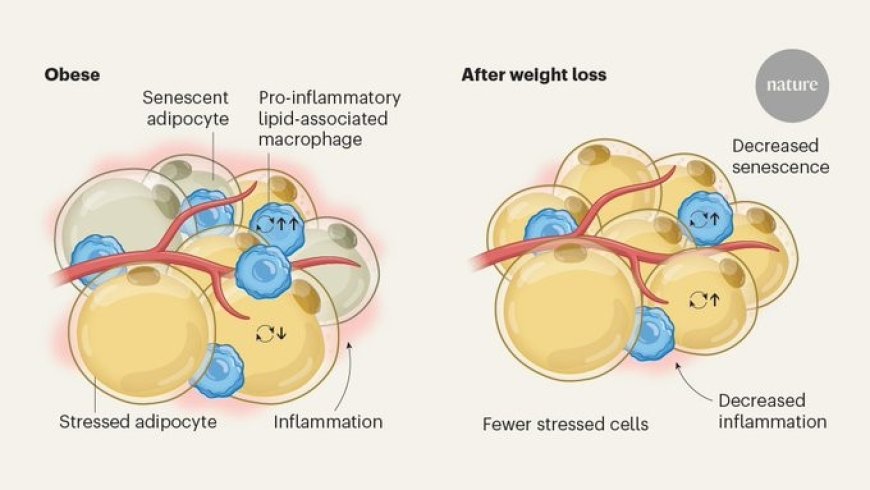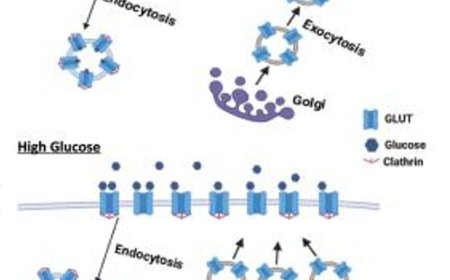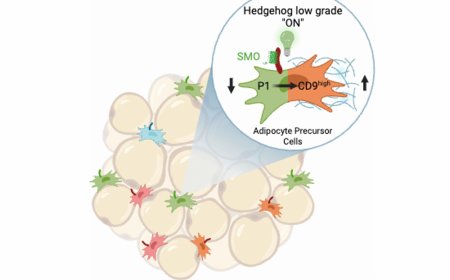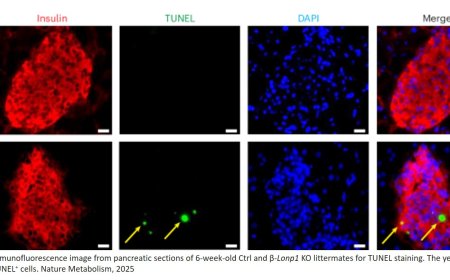Weight loss alters adipose tissue beyond just reducing fat

Scientists have produced the first detailed characterisation of the changes that weight loss causes in human fat tissue by analysing hundreds of thousands of cells. They found a range of positive effects, including clearing out of damaged, ageing cells, and increased metabolism of harmful fats.
The researchers say the findings help to better understand how weight loss leads to health improvements at a molecular level, which in the future could help to inform the development of therapies for diseases such as type 2 diabetes.
The study, published in the journal Nature, compared samples of fat tissue from healthy weight individuals with samples from people with severe obesity (BMI over 35) undergoing bariatric weight loss surgery. The weight loss group had fat samples taken during surgery and more than five months after surgery, at which point they had lost an average of 25 kg.
The researchers analysed gene expression in more than 170,000 cells that made up the fat tissue samples, from 70 people.
They unexpectedly found that weight loss triggers the breakdown and recycling of fats called lipids. This recycling process could be responsible for burning energy and reversing the harmful build-up of lipids in other organs like the liver and pancreas. The researchers say that further study will be needed to establish if lipid recycling is linked to the positive effects of weight loss on health, such as remission of type 2 diabetes.
They also found that the weight loss cleared out senescent cells, which are ageing and damaged cells that accumulate in all tissues. The senescent cells cause harm because they no longer function properly and release signals that lead to tissue inflammation and scarring.
In contrast, the researchers found that weight loss did not improve the effects of obesity on certain aspects of the immune system. They found that inflammatory immune cells, which infiltrated the fat of people with obesity, did not fully recover even after weight loss. This type of inflammatory cell memory could be harmful in the long term if people regain weight.
The study lead study, said: “We’ve known for a long time that weight loss is one of the best ways to treat the complications of obesity, such as diabetes, but we haven’t fully understood why. This study provides a detailed map of what may actually be driving some of these health benefits at a tissue and cellular level.
“Fat tissues have many underappreciated health impacts, including on blood sugar levels, body temperature, hormones that control appetite, and even reproductive health.
“We hope that new information from studies like ours will start to pave the way for developing better treatments for diabetes and other health problems caused by excess body fat.”













